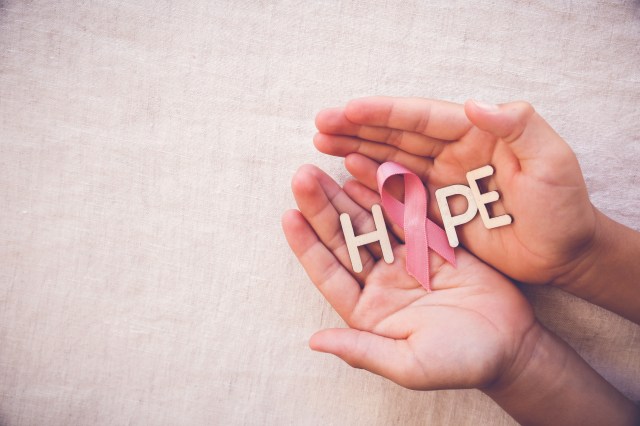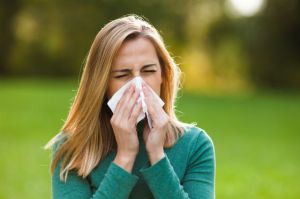By Cassandra Raposo and Rebecca Galib
October brings with it many colors, like the vibrant red, orange and yellow of autumn leaves. October is also Breast Cancer Awareness Month, so while brilliantly colored leaves are falling around us, another color – pink – is also making the rounds.
According to the American Cancer Society, roughly 1 in 8 American women will be diagnosed with breast cancer. Breast cancer is the second-deadliest cancer for women in the U.S., behind lung cancer.
It’s important to find signs of breast cancer at its earliest stages. Complete a breast self-exam monthly and report any changes to your doctor. Women ages 40-54 and younger women with risk factors for breast cancer should have yearly mammograms, according to the American Cancer Society. Women age 55 and older should have a mammogram every year or switch to one every other year. Make sure to ask your doctor what recommendations are right for you.
In addition to breast cancer, women should keep these five issues in mind for optimal health.
Menopause
Menopause can affect more than menstrual cycles. According to the U.S. Office on Women’s Health, lower levels of estrogen and progesterone can raise your risk for heart disease, stroke, osteoporosis and urinary incontinence. Be sure to have mammograms and Pap tests done regularly, even after menopause. Talk to your doctor about watching height measurements to detect bone loss, and blood, urine and other tests to screen for diabetes and heart disease.
Heart Disease and Stroke
According to the American Heart Association, 44 million women in the U.S. are affected by cardiovascular disease. But even if your family has a history of heart disease, it’s never too late to change your future. Be on the lookout for high blood pressure and high cholesterol. Stay active, don’t smoke and eat a healthy diet with plenty of fruits, vegetables, whole grains, nuts, beans and omega-3 and other unsaturated fats.
Osteoporosis
Roughly 10 million Americans have been diagnosed with osteoporosis, 80 percent of them women. Many women over age 50 develop osteoporosis because of the rapid decrease in estrogen, a hormone that protects bones, during menopause. According to the International Osteoporosis Foundation, you can help prevent bone loss by eating a well-balanced diet with plenty of calcium and vitamin D, exercising regularly, and avoiding smoking and heavy drinking.
Urinary Incontinence
Stress incontinence – loss of bladder control triggered by pressure on the bladder – is more common in women than in men. According to the Mayo Clinic, women are more likely to experience it due to pregnancy, childbirth, menopause and differences between female and male anatomy. You can decrease your risk by practicing pelvic-strengthening exercises, avoiding bladder irritants like alcohol and caffeine, and maintaining a healthy weight. Talk to your doctor to make sure it isn’t a sign of a more serious condition, such as diabetes or kidney disease.
Obesity and Weight Loss
Being overweight can lead to health problems like diabetes, heart disease and certain types of cancer, according to the National Institute of Diabetes and Digestive and Kidney Diseases. Simple lifestyle changes can help. Ditch the fatty foods for lean proteins, whole grains, fruits and vegetables. Use healthier fats like olive oil and avocado, and get your heart pumping with regular exercise.
Talk to your doctor if you have any concerns about these health issues.
Do you have any advice about these health issues? Tell us in the comments.
















